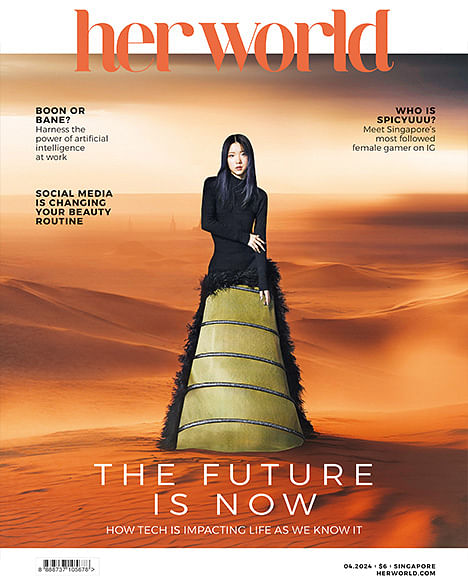
It was once the norm for me to buy more than 100 pairs of socks, 200 pairs of panties and 200 pairs of stockings in a year. I think I owned the entire Marks & Spencer’s underwear department at one point. Once, I found a particular brand of shampoo and conditioner I liked so much that I bought the entire stock from the spa. It was an imported specialty brand that cost $60 a bottle. That stock lasted me six years. I’m still trying to finish the conditioner, which I’ve kept in the fridge to preserve. I’m now down to my last three or four bottles.
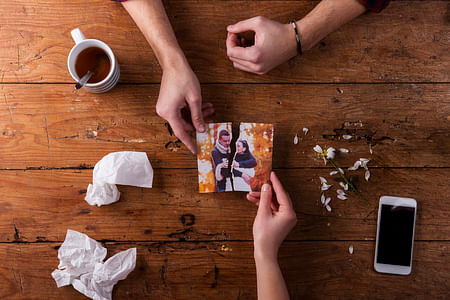
Buying in secrecy
I used to be an obsessive-compulsive person. When anything caught my interest, I’d go over the top with it. I’d gorge on my favourite food until I was sick enough to be hospitalised. When I picked up running, I did it even when I was ill and ended up getting pneumonia. But shopping was perhaps the biggest manifestation of my obsessive-compulsiveness. I started shopping impulsively at 25, after my first husband left me for another woman. Spending money was my way of getting back at him for not wanting to be with me. It sure beat sitting around feeling miserable.
But my shopaholic behaviour only became a full-blown problem in my mid-30s. My publishing job wasn’t going anywhere and my second marriage seemed to be heading for the rocks. Compulsive shopping became my way of coping with my insecurities and the strained relationship I had with my entire family. My parents especially were disappointed by the choices I made in life and I was made to feel bad. I had so much guilt that when I looked at myself in the mirror, I didn’t like what I saw because I didn’t know who I was. So shopping was my way of “realising” myself. I thought shopping could buy a whole new and improved me. The shopping started off innocuously – just little things here and there while I was out with my colleagues.
But it soon got to the point where if I didn’t buy anything, I’d feel terribly out of sorts.
On top of that, I started feeling that I had to buy more than the others. I couldn’t tell them that I just had to get more of those brown socks I’d just seen, so I would sneak back and buy them in secret. Then I’d hide my purchases in a nondescript plastic bag so no one would know I’d done more shopping. Yet when I looked in the bag, I felt terribly ashamed so I’d stash it somewhere out of sight. That’s how I ended up with bags and bags of unused purchases hidden in my cupboard. I knew it wasn’t normal and I felt guilty and silly, but I couldn’t stop myself. I felt that if I didn’t do it and the world ended tomorrow, I’d be left with nothing.
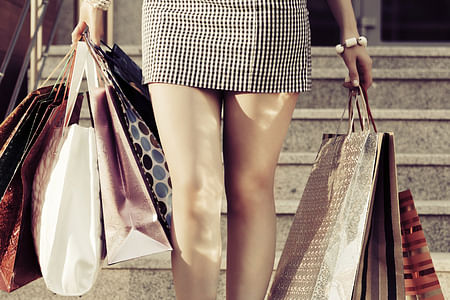
Only the good stuff
I soon moved on to bigger-ticket items. This was in the early ’90s, a time of extreme materialism. It was all about having two more than the other person. This was also when my second husband was bringing in big bucks as the chief executive officer of an international multimedia company. Our combined salaries amounted to $40,000 a month. We had more money than was good for us and we didn’t know what to do with it.
At the time, I was also living with my in-laws and I wasn’t happy about it. My husband knew, so he made it up to me by giving me supplementary cards to all of his credit cards. In a way, he opened the doors to my full-blown shopaholicism.
Fashion was all about luxury labels then, so that’s what I went for. In one year, I bought two dozen designer suits that cost more than $1,000 each. I had the works: clothes, bags, shoes, accessories and makeup from brands like Louis Vuitton, Gucci, Prada and Yves Saint Laurent. After the buying sprees, I’d think, “Why did I do that?” I did it because I could. Otherwise I’d feel empty. But the minute I possessed it, the thrill was gone. I wouldn’t know what to do with what I’d bought. The same applied to smaller purchases like socks and shampoo. I had to buy something every day, whether it was from Jil Sander or 7-Eleven. That’s how I ended up spending $20,000 a month for two years.
My husband would make comments about my shopping but he couldn’t do anything about it because he couldn’t get to the bottom of what was making me do this. He thought if he let me buy what I really wanted, I would run out of things to buy eventually. But it only made things worse.
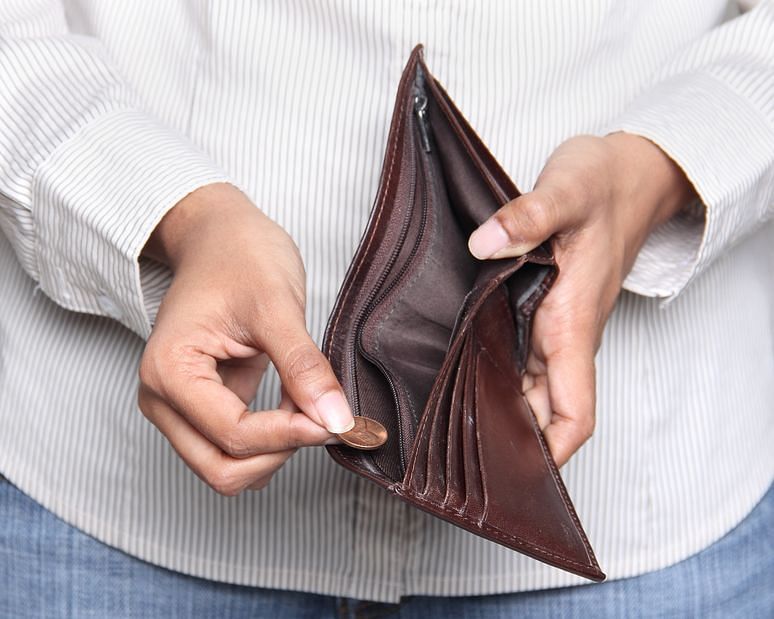
Road to recovery
The 1997 crisis led to my husband losing his job overnight, which eventually resulted in us having to sell our three private properties so he could set up a new business. My spending never actually contributed to his loss of income, though it could have made his savings stretch a bit longer and help him hold on to our homes. I remember one of the first things I thought to myself when he lost his job was, “Oh no, we’re going to be in trouble because I can’t go shopping anymore.”
This loss of security and income was a harsh but necessary wake-up call. If I had not come up against a wall, I wouldn’t have made any life-changing decisions to reform myself. Finding myself through religion was a big part of the healing process. It enabled me to stop feeling bad about not being the person who I thought my parents expected me to be.
But what really saved me was the birth of my daughter five years ago. I was no longer living for myself and if I wasn’t going to be responsible for my daughter, it would negatively impact her for the rest of her life. This made me wake up – for good. For the first time in my life, I started budgeting and saving money.
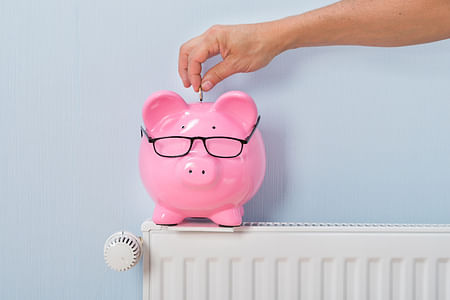
Walking the talk
I am now a normal shopper although there are still days when I feel I must go out and buy something because there’s a sense of pleasure to be derived from it. The maximum I can go without shopping is three months before I start feeling deprived. But I never spend more than $1,000 a month on fashion shopping. My last shopping spree cost me $500 for some clothes, bags and shoes from Far East Plaza.
The only problem is that my daughter has learnt to love shopping, probably from me! From the time she was a toddler, she’d say: “I need to buy something today, even if it’s just a packet of sweets.” So I am conscious about spending too freely in her presence. I talk to her about saving and I do it together with her to set an example. If I see something I really like that costs more than four figures, I’ll save up for it. If it’s still there when I can afford it, then I’ll get it. I never go to sales because that’s where I did the most damage. I also have a controlled allowance. I tell my husband to put the rest of the money in a fixed deposit so I can’t have access to it.
As for all the clothes I bought, I’ve given them away to whoever has use for them. So what if they cost a lot? Now that I know acquiring possessions can never fulfil or make you happy, I can look back at my past and laugh at how absurd it all was. In the past, not wanting to know about money was my excuse to spend it. Now I have to be responsible for other lives, by choice, not out of obligation. It not only feels right – it is the biggest blessing. A life is not well lived unless it is lived with and for others.
This story first appeared on Herworld, print issue March 2009.

